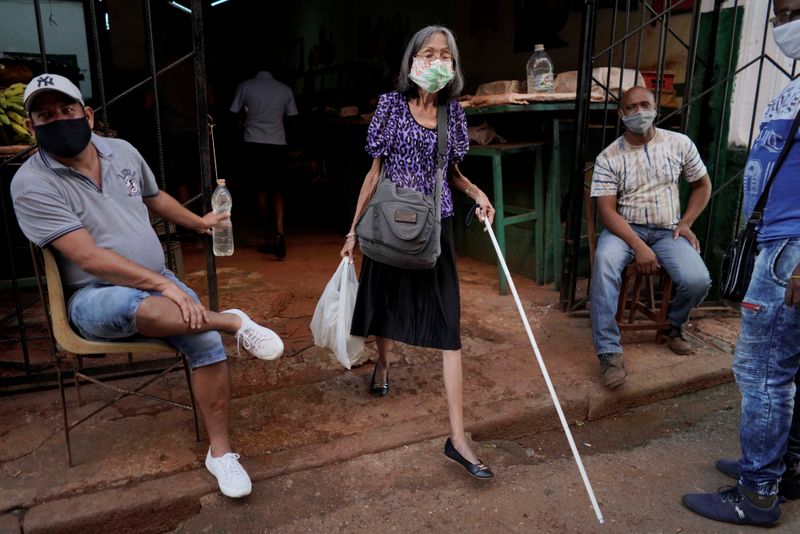HAVANA (Reuters) - Flora Villareal, 67, part of a cohort of Cubans who graduated from an experimental piano tuning program for the blind and visually impaired in 1970, is still plying her trade half a century later.
But this year has been hard because of the pandemic. She usually works for Havana's recording studios and performance venues, which had to close down for many months during Cuba's coronavirus lockdown.
"It's been very difficult because there's virtually been no work," said Villareal, a wiry woman with silver shoulder-length hair who uses a white walking stick. "And I've also had to look after myself because you never know where there's coronavirus."
Born into a family with a genetic predisposition toward visual impairment, only one of her three siblings still lives. She has a son and granddaughter in the city of Matanzas, about 62 miles (100 km) east of Havana, and visits there once a year.
"I live on my own so it's been a bit difficult to be looking after the house while also going out working and looking for stuff," said Villareal, who retired from working for state cultural institutions in 2012 but still works privately to supplement her monthly pension equivalent to just $13.
Shortages of goods in Communist-run Cuba have worsened as the pandemic, which demolished tourism and hardened U.S. sanctions, further squeezed the struggling centrally planned economy.
Cuba's tough lockdown, including the suspension of public transportation, has enabled it to contain its coronavirus outbreak but made it even harder for Cubans like Villareal to make ends meet and hunt for scarce goods.
Her disability and highly specialized profession – on the sidelines of a music world hard hit by the ban on public gatherings – have made it particularly tough for her to get by.
"But you get on with it because you always end up overcoming difficulties," she said.
Now at least, work is picking up again slightly for Villareal, after the government announced this month Cuba needed to adapt to a "new normality." Public transportation and most activities would resume, it said, albeit with precautions to prevent the spread of coronavirus, like reduced capacity in concert halls.
"It's a work worthy of a lot of respect," said Cuban singer and pianist Haydee Milanes, as Villareal tuned the piano in the recording studio of her father, one of Cuba's best-known singers, Pablo Milanes where she was rehearsing.
"It is utterly essential for us musicians that the pianos we use be well tuned so they sound good."
Villareal is grateful she got the opportunity to learn an interesting trade at a time when there were few opportunities for people with her disability.
Piano tuning actually first emerged as a skill particularly suited to the visually impaired or blind in the 1800s in Europe. The thinking was in part that their lack of sight would make their sense of hearing particularly acute.
Villareal is one of the most sought-after piano tuners in Cuba, where a world-renowned music scene draws on a European and African heritage.
Still, the sextagenarian expects her trade to gradually disappear as piano playing loses popularity and technology like tuning software takes over.
At the same time technological advances like screen readers and speech recognition software are opening new professional doors for the visually impaired. But Villareal plans to keep on tuning as long as she is physically able to.

"I think I will die tuning," she said.